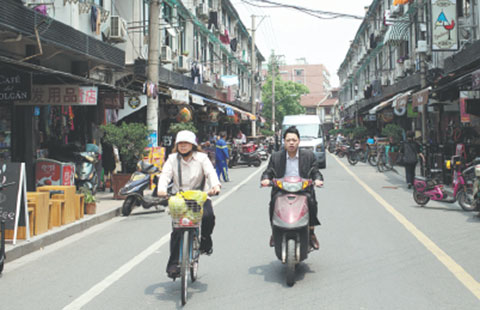China to assist in SE Asian upgrade
By LYU CHANG, YANG ZIMAN and ZHANG LI in Nanning (China Daily) Updated: 2016-09-12 07:35Vice-premier says China has key role to play in investment and trade ties
China is willing to help drive industrial upgrading in Southeast Asian nations in the form of direct investment, projects, technological cooperation, and imports and exports of equipment, Vice-Premier Zhang Gaoli said on Sunday.
"China, with its advantages in capital, technology, engineering and management for infrastructure construction, will help ASEAN countries to elevate their industrialization based on demand in different countries," Zhang said at the opening ceremony of the 13th China-ASEAN Expo (CAEXPO) in Nanning, capital of the Guangxi Zhuang autonomous region.
He said China and the 10-member Association of Southeast Asian Nations (ASEAN) should establish closer ties with an e-commerce trade platform being built in Nanning.
Jack Ma, chairman of e-commerce giant Alibaba Group, said during the four-day event that the company will expand its investment in the Southeast Asian countries, using Guangxi as a springboard for regional development.
Alibaba, the world's largest online retailer, has taken a controlling stake in Southeast Asian online retailer Lazada to tap into the lucrative consumer market in countries such as Indonesia, Singapore and Thailand.
"The development of online business not only promotes more consumption, but has helped to create nearly 30 million jobs in China" said Ma.
"I believe that Southeast Asian countries will gain great development opportunities from e-commerce," he said.
At the same time, the Belt and Road Initiative under the framework of the China-proposed Silk Road Economic Belt and the 21st Century Maritime Silk Road, also provides opportunities for energy cooperation.
China General Nuclear Power Group, the country's largest nuclear operator in terms of capacity, said it would follow the Belt and Road Initiative to seek further business development in Southeast Asia.
Chen Jian, general manager of Fangchenggang Nuclear Power Co Ltd, CGN's subsidiary, said the establishment of its regional headquarters in Malaysia shows its determination to push forward cooperation in Southeast Asian countries.
"Currently we have many projects in Thailand, Malaysia, Singapore and other countries in the field of clean energy," he said.
"It's of mutual benefit, as it not only helps meet the energy demand but it drives up the whole value chain for ASEAN countries in terms of technology and equipment manufacturing through our cooperation."
China is ASEAN's largest trading partner, while ASEAN is China's third largest. Bilateral trade between China and ASEAN has increased considerably over the past 25 years since the two sides established dialogue relations in 1991, growing 18.5 percent year-on-year from $7.96 billion to $472.16 billion last year.
China and ASEAN have pledged to further expand bilateral trade to $1 trillion by 2020. To achieve the goal, China and ASEAN signed an agreement late last year to upgrade the ASEAN-China Free Trade Area to further liberalize and facilitate bilateral trade and investment. The agreement officially came into force in July.
Zhou Mo contributed to the story.
- China-ASEAN relations are fruitful: vice premier
- China committed to improving ties with ASEAN: Official
- 13th China-ASEAN Expo opens in Guangxi
- China, ASEAN launch platform to control plant and animal diseases
- Remarks at the 19th China-ASEAN Summit to Commemorate the 25th Anniversary of China-ASEAN Dialogue Relations
- China to assist in SE Asian upgrade
- Navy drill highlights strong ties
- Tianjin mayor suspected of corruption, faces probe
- President Xi congratulates opening of Schwarzman College
- In visit to alma mater, Xi calls for equality
- China, US eye growth in tourism
- Space lab being made ready for launch
- 129 telefraud suspects sent to mainland
- Unified work permit for foreigners on way
- Zika unlikely to spread on mainland, officials say










